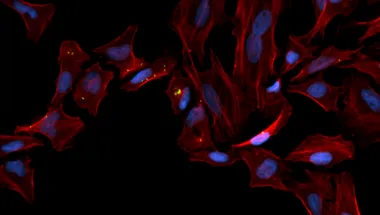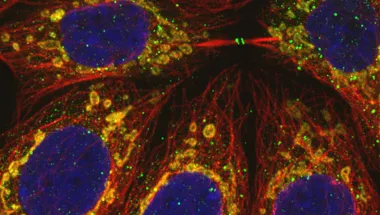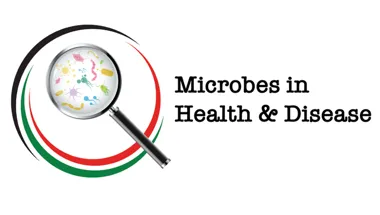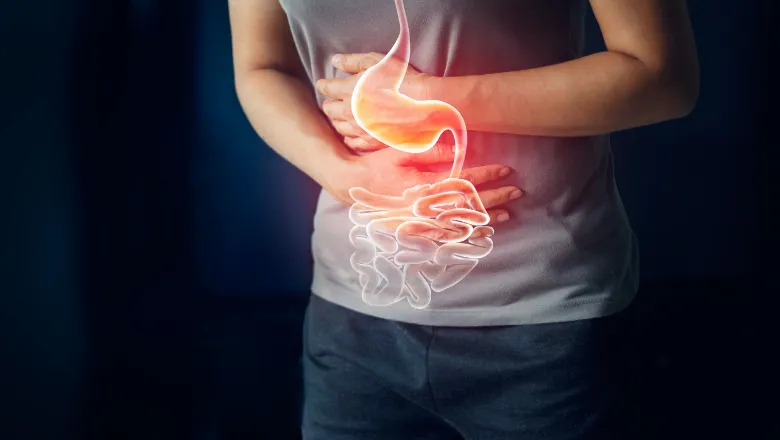
Dr Charlotte Odendall
Senior Lecturer
Research interests
- Immunology
Biography
Dr Charlotte Odendall is a Senior Lecturer in the Department of Infectious Diseases at King’s College London. Her group studies innate immunity and bacterial pathogenesis, with a focus on mucosal inflammation and host–pathogen interactions.
Charlotte obtained her PhD at Imperial College London, where she trained in Cellular Microbiology with David Holden. She then carried out her postdoctoral research at Harvard Medical School and Boston Children’s Hospital, where she worked on innate immune sensing of intracellular pathogens in the lab of Jon Kagan.
Her lab is based in the School of Immunology & Microbial Sciences at King’s College London and is affiliated with the Francis Crick Institute through a university attachment. The group investigates how epithelial and immune cells detect bacterial infection, regulate inflammation, and are targeted by microbial effectors.
Charlotte’s research is funded by the Wellcome Trust and the Medical Research Council, and she is a member of the EMBO Young Investigator Programme.
Research

Innate Immunity in Host-Pathogen Interactions
The Odendall Group is based in the Department of Infectious Diseases

Lipids and Membranes Research Interest Group
A Lipids and Membranes Research Interest Group

School of Immunology & Microbial Sciences: Development, Diversity & Inclusion
The work of the Development, Diversity & Inclusion committee for the School of Immunology & Microbial Sciences

Microbes in Health & Disease
The Microbes in Health & Diseases Research Interest Group aims to foster collaboration across departments and faculties at KCL to explore the multifaceted role microbes play in health and disease.

The Francis Crick Institute
King’s is delighted to be a founding academic partner alongside UCL and Imperial College in the Francis Crick Institute, joining the multidisciplinary research expertise from all the Partners together to deliver world-leading biomedical research.
News
Three King's researchers awarded Wellcome Career Development Awards
Three researchers from the School of Immunology & Microbial Sciences (SIMS) at King’s College London have been awarded Wellcome Career Development Awards. The...

Bacteria that cause dysentery also actively block body's ability to fight the infection
Scientists reveal that Shigella tricks the immune system, hindering the body’s ability to mount an effective immune response against infection

Research

Innate Immunity in Host-Pathogen Interactions
The Odendall Group is based in the Department of Infectious Diseases

Lipids and Membranes Research Interest Group
A Lipids and Membranes Research Interest Group

School of Immunology & Microbial Sciences: Development, Diversity & Inclusion
The work of the Development, Diversity & Inclusion committee for the School of Immunology & Microbial Sciences

Microbes in Health & Disease
The Microbes in Health & Diseases Research Interest Group aims to foster collaboration across departments and faculties at KCL to explore the multifaceted role microbes play in health and disease.

The Francis Crick Institute
King’s is delighted to be a founding academic partner alongside UCL and Imperial College in the Francis Crick Institute, joining the multidisciplinary research expertise from all the Partners together to deliver world-leading biomedical research.
News
Three King's researchers awarded Wellcome Career Development Awards
Three researchers from the School of Immunology & Microbial Sciences (SIMS) at King’s College London have been awarded Wellcome Career Development Awards. The...

Bacteria that cause dysentery also actively block body's ability to fight the infection
Scientists reveal that Shigella tricks the immune system, hindering the body’s ability to mount an effective immune response against infection

